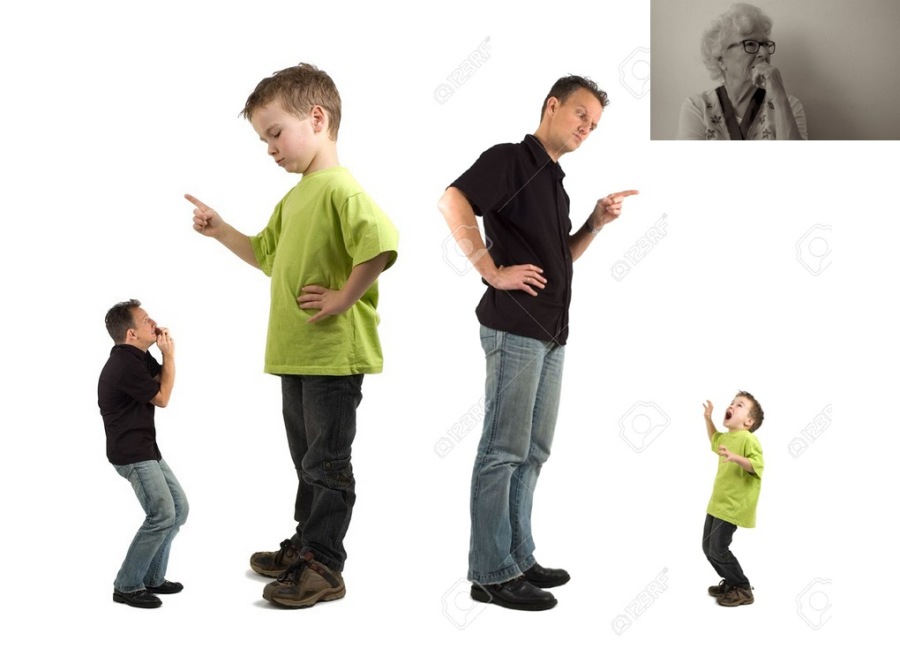Music is the universal language.

Or, when hearing a song together with unknown people, didn’t you have a strange feeling of connection with them?
Music has the power to express feelings far much better than words. It speaks beyond any language.
The same words expressed in an opera can burst you in tears while just only reading them in the script could let you indifferent. (At the end of the buzz, you can make a little experiment concerning to this.)
Music makes each and everyone willing to get involved, of being part of it, of some kind of relationship.
One of its primaries functions is to breed and to fasten social cohesion and having people´s brains status aligned so they can belong to a larger community than themselves.
Music and dance. Music can change us physically.
There is no "music center" on the brain. All parts of the brain get involved in the experience of music. Music is a whole neural system activity.
Memories, associations, expectations, and a wide variety of deep primordial emotions are all affected by music. Other systems, on which the movement of the body is involved, are automatically motivated in order to put the music in motion, as dancing.
By listening to a beat, you might start tapping your foot before your brain even notices the music.
Music can make you feel physically different after listening to it, if you never listened to a certain kind of music, it can throw a burst of dopamine which can effectively change your brain physically, as much as learning is a process on which new connections happen in our brain.
Experiencing same music differently
Sound is a construction of the brain, based on what a physicist can measure, vibrations varying on intensity, but it is needed a brain to distinguish between a car horning or a bird singing or the sound of the breeze.
Different mindsets can make a difference when listening to music. Some can hear music by the breeze on a tree, while others can only listen to music if they are willing to hear it.
Basically and initially, our brain is not “hard-wired” to any particular kind of music, it is the exposure to a kind of it, which “customises” our brain, educating it to make its own expectations when hearing a fragment of a music.
For the same reason, if our brain is customised, and expects to hear a note while hearing another, it will mishear the note and adapt it to its previous knowledge.
And the same will happen to the feelings it can awake on us.
If you come from a western culture, an Italian song could move your feelings, but if you hear the same issues involved in an Asiatic or Indian song, it could let you indifferent.
When you hear a fraction of music, the brain fills it with a much larger representation of it based on cultural expectations.
Pitch, rhythm and timber are the three of the basic blocks on which music is built on.
Unconsciously, our brain can “understand” different tones by associating metaphors to real life experiences, like a baby crying or a lion roaring.
Nevertheless, one of these tunes, put in a different context, can give a completely different response.
Watch it! While we speak, we produce music too.
We change the tune, the tempo, the timber, and with it, we are showing different emotions.
The “OK” your wife would say if you are inviting her for a romantic dinner, will sound absolutely different to the “OK” if you tell her you are going to be late after work, even if she says the same word.
As long as we can express the same word with a different intonation depending on our emotion at this very moment, the same thing we need to be aware of the “musicality” of the words we hear from others.
Many misunderstandings in a conversation can take place due to cultural background, the intonation expressed, and the intonation expected.
Even if due internet we could think we are in the era of communication, we are far from expressing ourselves much better with music than with spoken words, not to say if we compare spoken words with written words.
Credits to: Bobby McFerrin, Jamshed Bharucha, Provost and Senior Vice President of Tufts University; the James McGill Professor of Psychology and Neurosciences at McGill University, Daniel Levitin; Professor of Cognitive Neuroscience at the University of Sheffield, Lawrence Parsons. June 12, 2009 World Science Festival event "Notes & Neurons: In Search of the Common Chorus". (here is the link, starting at minute 10:30)https://www.youtube.com/watch?v=t8I2Xt54bwY
The experiment
Take the following words of a Puccini opera, Turandot. It is sung by Calaf, who falls in love at first sight with the beautiful but cold Princess Turandot. However, any man who wishes to wed Turandot must first answer her three riddles; if he fails, he will be beheaded. In the aria, Calaf expresses his triumphant assurance that he will win the princess.
“None shall sleep! None shall sleep!/Not even you, oh Princess,/in your cold bedroom,/watching the stars/that tremble with love and with hope!
But my secret is hidden within me;/no one will know my name!/No, no! On your mouth/I will say it when the light shines!
And my kiss will dissolve/the silence that makes you mine!
No one will know his name,/and we will have to, alas, die, die!
Vanish, o night!/Fade, you stars!/Fade, you stars!/At dawn, I will win!”
No matter if you understood the basics of the story.
Your feelings will dramatically change when you hear the music
That’s the power of music. Enjoy.
https://www.youtube.com/watch?v=rTFUM4Uh_6Y
"
Artikel von David Navarro López
Blog ansehen
Conchita es una venerable anciana, oriunda de una aldea de la España profunda, con la que tengo el p ...

Everyone has met someone who is always lucky. They always find quickly place to park the car. They h ...

Segunda entrega de las Reflexiones de Conchita. · David: Conchita, ¿qué piensa usted de la figura p ...
Verwandte Fachleute
Diese Stellen könnten Sie interessieren
-

Veranstaltungskaufmann (m/w/d)
Gefunden in: JOIN DE S2 T2 - vor 1 Tag
Fiesta Records GmbH Cologne, Deutschland ApprenticeshipDie Fiesta Records GmbH wurde bereits 2009 gegründet. Mit zahlreichen ausgewählten Künstlern gehören gehört das Musiklabel zu den etablierten deutschen Schallplattenfirmen. · Für ihre Verdienste wurden Fiesta Records und ihre Künstler mehrfach ausgezeichnet (u.a. Fachmedienpreis, ...
-
Second Level Analyst
Gefunden in: beBee S2 DE - vor 4 Tagen
Robotron Datenbank-Software GmbH Dresden, Deutschland GanztagsDas ist eine Stellenanzeige von Den vollständigen Link zur Stellenanzeige · finden Sie hier: · STELLENBESCHREIBUNG · Stellenbeschreibung · Für uns als Softwarehersteller ist ein leistungsfähiger Support für unsere Produkte zusammen mit vielseitigen und weitreichenden Servicemod ...
-

Kaufmann für audiovisuelle Medien
Gefunden in: JOIN DE S2 T2 - vor 1 Tag
Fiesta Records GmbH Cologne, Deutschland ApprenticeshipDie Fiesta Records GmbH wurde bereits 2009 gegründet. Mit zahlreichen ausgewählten Künstlern gehören gehört das Musiklabel zu den etablierten deutschen Schallplattenfirmen. · Für ihre Verdienste wurden Fiesta Records und ihre Künstler mehrfach ausgezeichnet (u.a. Fachmedienpreis, ...
Kommentare
Julio Angel 🐝Lopez Lopez
vor 7 Jahren #3
David Navarro López
vor 7 Jahren #2
Most of my day I am whistling, humbling or having music on my head (or in my headphones). Now I am writing and listening to music. I would say, we have our "life soundtrack". One thing I like the most is cooking while listening to music full volume in my headphones, just any kind of music, jumping from ACDC to Bach, from Yellowjackets to Miles Davis, from Pavaroti to ZZTop...no matter what, but all the time on
David Navarro López
vor 7 Jahren #1
LOL You are right Brian. I should never have left behind my music classes. The good thing of it is that even not everyone has the talent to make good music, all of us have the ability to understand it and to feel moved with it, to enjoy with it, share it and find a "common place" to communicate with others much better than with words